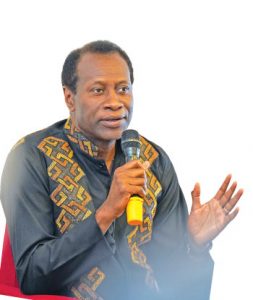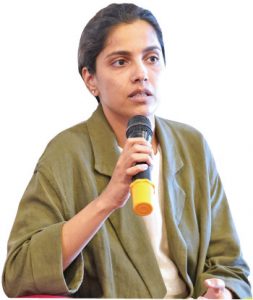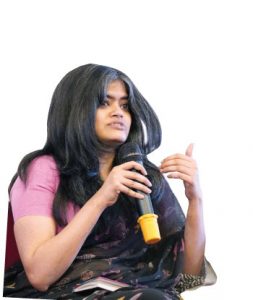Seventy years after the Bandung Conference, the Global South is once again confronting the weight of broken promises and emerging challenges from economic coercion and militarised borders to the erosion of independent media and rising internal conflicts. Yet, in this moment of crisis, a bold new vision is taking shape, one that demands not just reform, but rupture. From Colombo, voices across continents are calling for a reinvention of solidarity, rooted in sovereignty, justice, and collective imagination. This is not a return to nostalgia, but a declaration: the South will not kneel. It will build anew.
Seventy years after the historic Bandung Conference, the Global South finds itself at another pivotal moment. In April 2025, Colombo hosted a significant gathering of scholars, activists, and policymakers from Asia, Africa, and Latin America. This conference aimed to reflect on the enduring relevance of the Bandung Principles and to explore pathways for renewed South-South cooperation in today’s complex geopolitical landscape.
The original Bandung Conference in 1955 was a landmark event where 29 newly independent nations convened to promote Afro-Asian economic and cultural cooperation and to oppose colonialism and neocolonialism. The ten principles adopted then emphasized respect for sovereignty, non-intervention, and cooperation. Today, these principles resonate as the Global South navigates challenges such as economic dependency, geopolitical tensions, and the need for sustainable development.
The Colombo conference served as a platform to discuss strategies for self-determination, economic diversification, and collective resilience. It underscored the importance of solidarity among developing nations and the potential of South-South cooperation to address common challenges and to build a more equitable global order. As the Global South reflects on its past and charts its future, the spirit of Bandung continues to inspire efforts towards unity, sovereignty, and shared progress.
South-South cooperation reimagined – Dr. Aziz Salmone calls for trans-internationalism
 In a world increasingly shaped by geopolitical fragmentation and economic inequity, Dr. Aziz Salmone, a leading Pan-African thinker and activist, calls for a bold reimagining of South–South solidarity. In a compelling conversation during his recent visit to Sri Lanka, Dr. Salmone outlines a vision rooted in “Trans-Internationalism”—a framework uniting workers, feminists, indigenous peoples, and other progressive forces across the Global South. He emphasizes Sri Lanka’s untapped potential, the strength of its civil society, and the urgent need for countries like it to step out of extractive global roles and into self-determined futures.
In a world increasingly shaped by geopolitical fragmentation and economic inequity, Dr. Aziz Salmone, a leading Pan-African thinker and activist, calls for a bold reimagining of South–South solidarity. In a compelling conversation during his recent visit to Sri Lanka, Dr. Salmone outlines a vision rooted in “Trans-Internationalism”—a framework uniting workers, feminists, indigenous peoples, and other progressive forces across the Global South. He emphasizes Sri Lanka’s untapped potential, the strength of its civil society, and the urgent need for countries like it to step out of extractive global roles and into self-determined futures.
Q: Many people in Sri Lanka question whether a country like ours can thrive through South–South solidarity. What makes you believe countries like Sri Lanka, or even Latin American nations, can succeed in this path?
First, I want to stress that Sri Lankans often underestimate the strength of their civic society. Something as simple as obeying traffic lights or maintaining clean streets may seem small, but it shows social discipline in a region where such things aren’t always common.
This is significant, especially for a country that has endured a long and difficult conflict and various political experiments.
Now, you have a Government elected based on social demands, but one that seems to be leaning towards austerity, especially through its dealings with the IMF. That’s not what people voted for. Still, we remain hopeful and supportive of the democratic aspirations of the people.
For a country like Sri Lanka to move forward, it needs to break free from its traditional role in the global division of labour, being stuck producing commodities like rubber or tea, and move towards industrialisation.
That requires collaboration with countries like Vietnam, China, and others to develop appropriate technologies, take control of your economy, and reduce dependency on expensive imports.
You must also address structural issues: land reform, modernising agriculture, reducing the technological gap, and establishing real national ownership of natural resources. And importantly, financial sovereignty is reclaiming the basis of your currency. All of this is possible, but it requires vision and political courage.
Q: During the panel discussion, you spoke about the importance of race, identity, and the history of Global South nations. How does this connect with Sri Lanka’s journey and its global positioning?
Sri Lanka, as an island nation with a rich history, has immense potential not only economically, but also as a model for the world. Part of that potential lies in owning your identity.
The world needs to see that a country from the Global South, rich in history and diverse in its makeup, can achieve transformation.
To do that, Sri Lanka must connect with countries such as South Africa, Brazil, and others with similar experiences and capacities.
Whether it’s trade unions, academia, medicine, or social movements, the challenges we face across the Global South are often the same. By exchanging ideas, resources, and people across these sectors, we can build a future that is just, sustainable, and self-determined.
Q: Can we expect other countries in the Global South to support Sri Lanka if it pursues this path of transformation?
Absolutely. But you must understand that this kind of transformation often invites external threats. Take Indonesia, for example, ten years after the Bandung Conference, there was a systematic extermination of progressives who held onto that spirit. So yes, solidarity exists, but it also comes with risks.
If Sri Lanka commits to real transformation, like it did with the people’s uprising and democratic demands, you will find allies. People like me come here with hope, looking for new beginnings. But if a Leftist Government takes power and then chooses neoliberal paths, not only does it disappoint the people, but it also becomes harmful to the broader movement for justice.
Solidarity is real. That’s why we’re here. We want to show that collective transformation is possible. I call this framework Trans-Internationalism, a unifying force of feminists, workers, indigenous peoples, the unemployed, and environmentalists, all with a progressive vision.
The foundation of a new internationalism will come from the Global South. But it will only happen when we fully realise and organise around our political power.
Q: Finally, what is your message to the new generation in the Global South, especially those in Sri Lanka?
Many young people today don’t realise that strong ties once existed between Asia, Africa, and Latin America.
There was a moment of shared purpose, like during the Bandung Conference, that inspired generations. That legacy needs to be reclaimed.
The so-called “triad” of Western powers is exhausted. Their only option now is war. But our option must be peace, solidarity, and equality. That is the future we must build from the South, for the South.
The Left’s moment- Varsha Gandikota – Nellutla on seizing the global shift for transformative change
 In a world shaped by sanctions, shifting alliances, and weaponised aid, Varsha Gandikota-Nellutla is one of the sharpest voices advocating for an independent and justice-driven future for the Global South.
In a world shaped by sanctions, shifting alliances, and weaponised aid, Varsha Gandikota-Nellutla is one of the sharpest voices advocating for an independent and justice-driven future for the Global South.
As Co-General Coordinator of Progressive International, she is at the forefront of designing a new political blueprint—one that challenges the dominance of outdated global governance structures and calls for a radical rethinking of sovereignty, solidarity, and power. Drawing on a legacy of political consciousness shaped in Hyderabad and honed across international platforms, Varsha speaks candidly about the pressures Southern States face—from backing causes like Palestine to maintaining aid-dependent systems—and why it’s time to move beyond resistance towards systemic reinvention. In this wide-ranging conversation, she offers not only critique, but a roadmap for collective political imagination and self-determination.
Q: Many Global South Governments, including Sri Lanka, seem hesitant to take firm stances on issues like the Palestinian cause, despite public support. Is this reluctance a global trend, and what factors contribute to it?
Absolutely, this is a global phenomenon. The United States, in particular, exerts significant pressure on countries that challenge its positions. For instance, South Africa faced immediate repercussions after initiating a case against Israel, including threats to bilateral relations and potential exclusion from trade agreements. Similarly, Colombia has experienced tensions due to its stance.
Even countries in the Global North aren’t immune; Spain faced trade investigations from the U.S. after announcing restrictions on arms shipments to Israel. The punitive measures are so severe that many Governments, especially those with fragile economies or political transitions like Sri Lanka, find it challenging to take bold positions. However, moments like these test our collective humanity. If not now, when will Governments stand up for what’s right?
Q: With the freezing of U.S. aid, many civil society organisations in countries such as Sri Lanka faced operational challenges. How can these Societies adapt and build resilience without relying heavily on foreign aid?
The over-reliance on foreign aid has often led to the depoliticisation of grassroots movements. Radical movements, be it trade unions or feminist groups, have sometimes been transformed into NGOs focusing on technical reforms, distancing them from their political roots.
The current funding challenges present an opportunity to reconnect with genuine political organising. It’s crucial to advocate for independent, politically driven funding and to build projects that resonate with the people’s real needs. At the State level, while the immediate impact of aid withdrawal is severe, it should motivate Global South countries to develop sovereign systems.
This means taking control of our education, health, and economic policies without external dictates. While the transition might be tough, it’s a step towards true self-determination.
Q: Given the current geopolitical shifts, what role should Leftist movements play in shaping the future of the Global South?
We’re at a pivotal moment, a rupture in the existing global order. Such breaks are rare and offer a chance to redefine our path. Leftist movements must seize this opportunity to advocate for systems rooted in equity, justice, and sovereignty. While the outcome isn’t predetermined and challenges lie ahead, proactive engagement can steer the future towards a more inclusive and self-reliant Global South.
The challenges facing the Global South today, whether economic coercion, media repression, or regional conflict, are not new. But what sets this moment apart is the growing clarity that survival is not enough. From the conversations in Colombo, one message rings loud: the Global South must move beyond resistance and toward reinvention.
South-South solidarity is not just a slogan from the past, it is a living, evolving force that can redefine the future. To reclaim agency, rewrite global rules, and build systems rooted in justice and mutual respect, the South must stand together not as victims of the present but as architects of what comes next.
From independent journalism to regional solidarity – Jahnavi Sen speaks on South Asia’s future
 As political fault lines deepen and independent journalism faces mounting pressure, voices like Jahnavi Sen’s are shaping the discourse on democracy, media, and solidarity in the Global South. As Deputy Editor of The Wire, one of India’s most respected independent news platforms, Sen brings a nuanced perspective to the challenges confronting the region—from media manipulation and internal conflict to the possibilities of transnational cooperation. In this conversation, she reflects on the shifting global order, the urgent need for cross-border dialogue, and the role of independent media in strengthening democratic resilience across the Global South.
As political fault lines deepen and independent journalism faces mounting pressure, voices like Jahnavi Sen’s are shaping the discourse on democracy, media, and solidarity in the Global South. As Deputy Editor of The Wire, one of India’s most respected independent news platforms, Sen brings a nuanced perspective to the challenges confronting the region—from media manipulation and internal conflict to the possibilities of transnational cooperation. In this conversation, she reflects on the shifting global order, the urgent need for cross-border dialogue, and the role of independent media in strengthening democratic resilience across the Global South.
Q: In the current global context, what are the prevailing trends affecting the Global South, and do you see any positive narratives emerging despite the challenges?
It’s undeniable that we’re in a difficult moment globally. However, such challenging times often illuminate the shortcomings of existing systems, creating space for potential alternatives. The arbitrary policies and tariffs introduced by the U.S. under Trump’s administration have starkly highlighted these issues for many Global South countries. While the situation is far from ideal, it does open avenues for reimagining and restructuring systems that better serve these nations.
Q: Considering the influential role of media today, how does it impact conflicts and movements within the Global South?
Media narratives wield significant power and can cause considerable harm. Historical instances like Radio Rwanda exemplify how the media can incite violence. Currently, we observe damaging narratives against foreign nations or specific communities, especially prevalent in certain media outlets.
The Independent media in many countries face immense challenges, including financial constraints, legal pressures, and restrictive Governmental laws. Building collaborations and sustainable financial models for these independent outlets is crucial to ensure they can continue to operate and provide balanced reporting.
Q: Reflecting on recent tensions, such as the near-conflict between India and Pakistan, how do internal conflicts within the Global South influence regional solidarity?
Conflicts within the Global South, like the India-Pakistan tensions, undoubtedly strain regional solidarity. Such disputes have historically hindered alliances, as seen with the challenges faced by the South Asian Association for Regional Cooperation (SAARC). It’s essential to seek alternatives to militarised narratives and address underlying issues between countries. While these conflicts are complex and persistent, proactive engagement and dialogue are vital to fostering unity and cooperation in the region.






